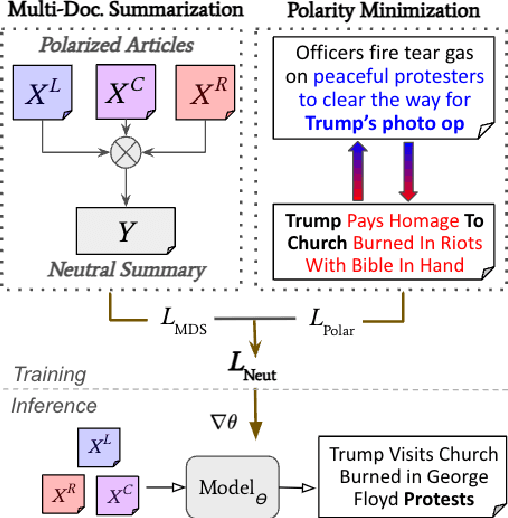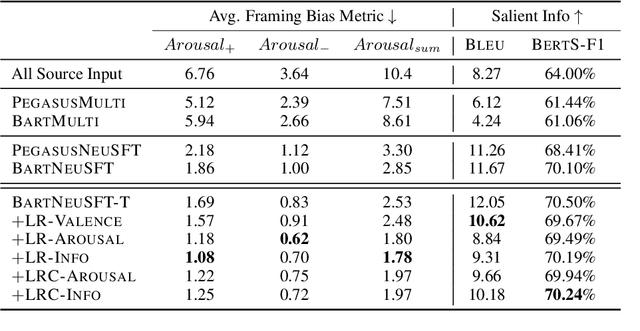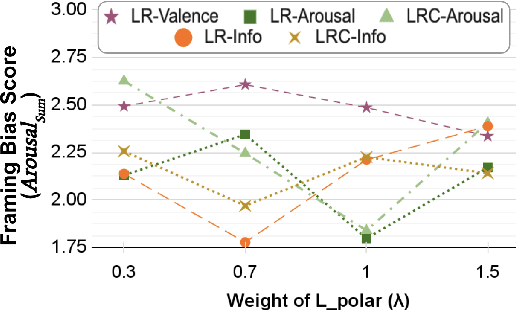Mitigating Framing Bias with Polarity Minimization Loss
Paper and Code
Nov 03, 2023



Framing bias plays a significant role in exacerbating political polarization by distorting the perception of actual events. Media outlets with divergent political stances often use polarized language in their reporting of the same event. We propose a new loss function that encourages the model to minimize the polarity difference between the polarized input articles to reduce framing bias. Specifically, our loss is designed to jointly optimize the model to map polarity ends bidirectionally. Our experimental results demonstrate that incorporating the proposed polarity minimization loss leads to a substantial reduction in framing bias when compared to a BART-based multi-document summarization model. Notably, we find that the effectiveness of this approach is most pronounced when the model is trained to minimize the polarity loss associated with informational framing bias (i.e., skewed selection of information to report).
 Add to Chrome
Add to Chrome Add to Firefox
Add to Firefox Add to Edge
Add to Edge